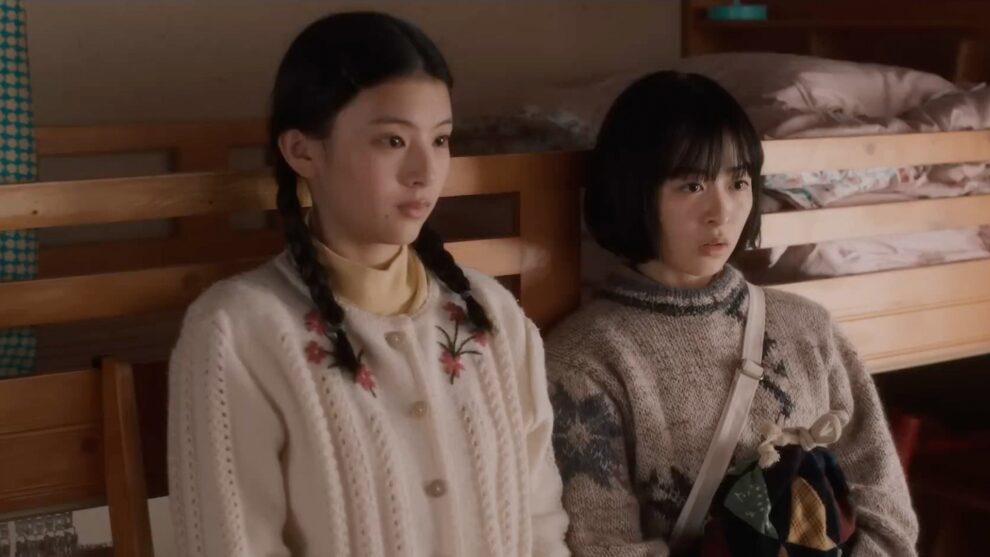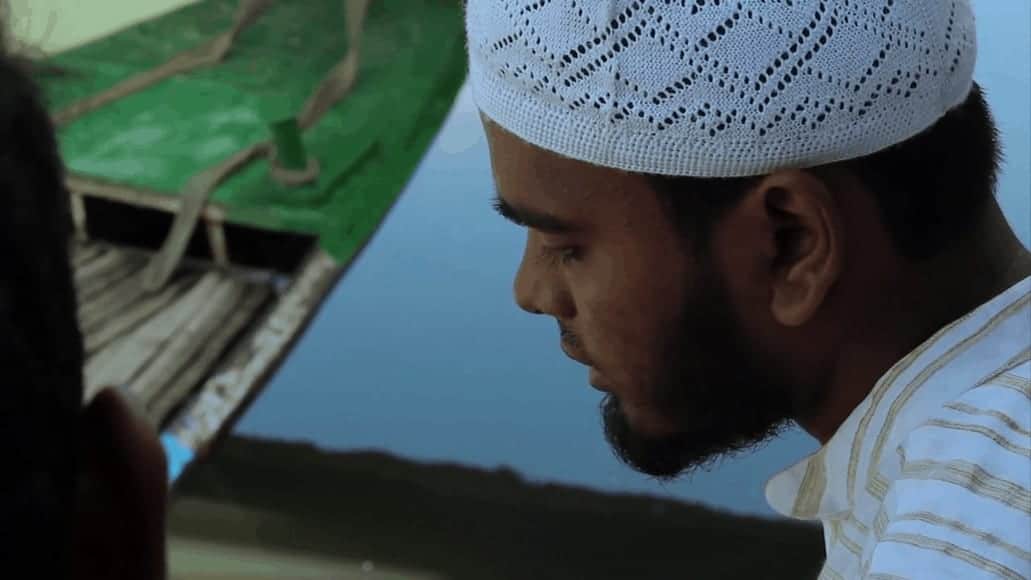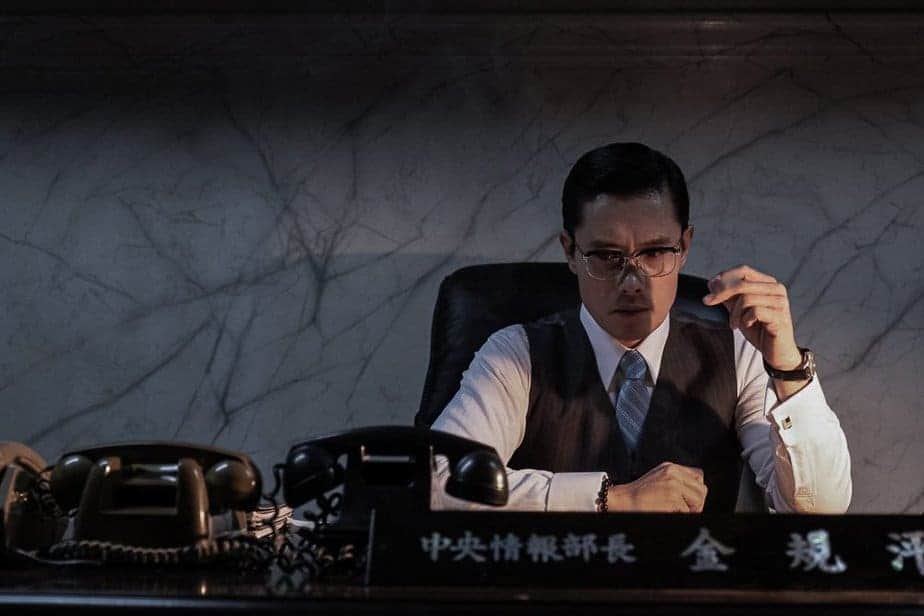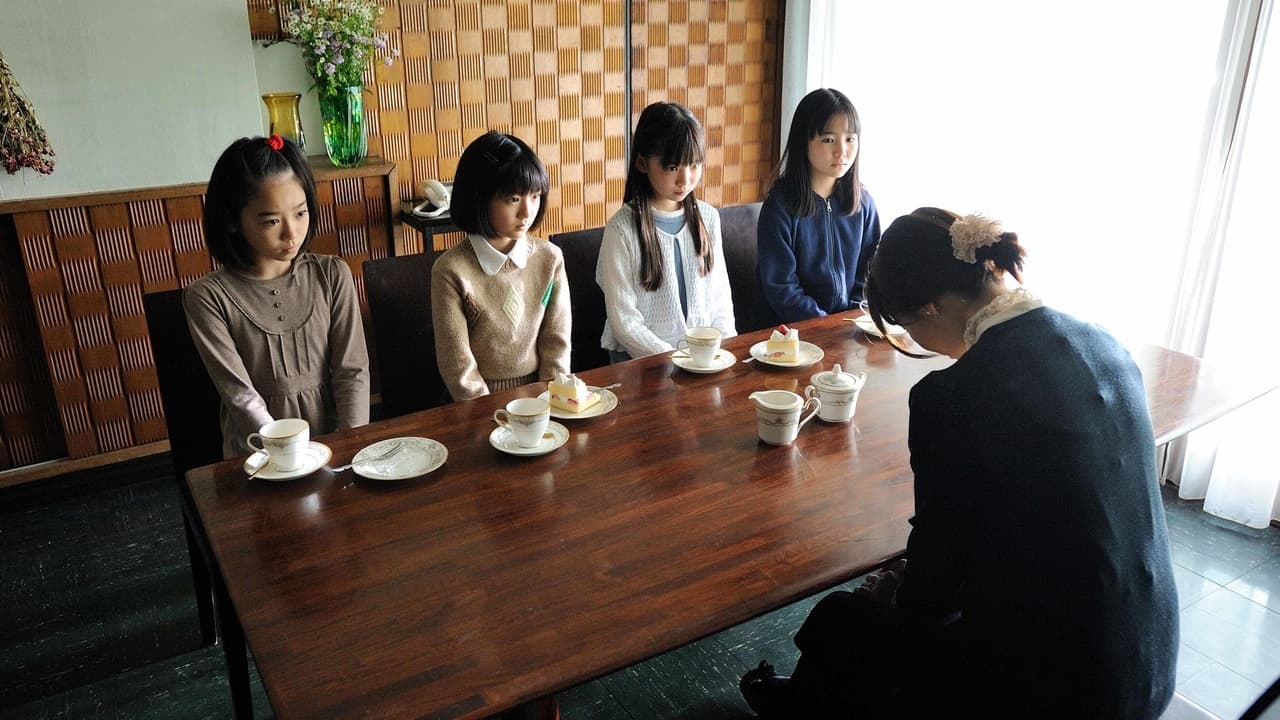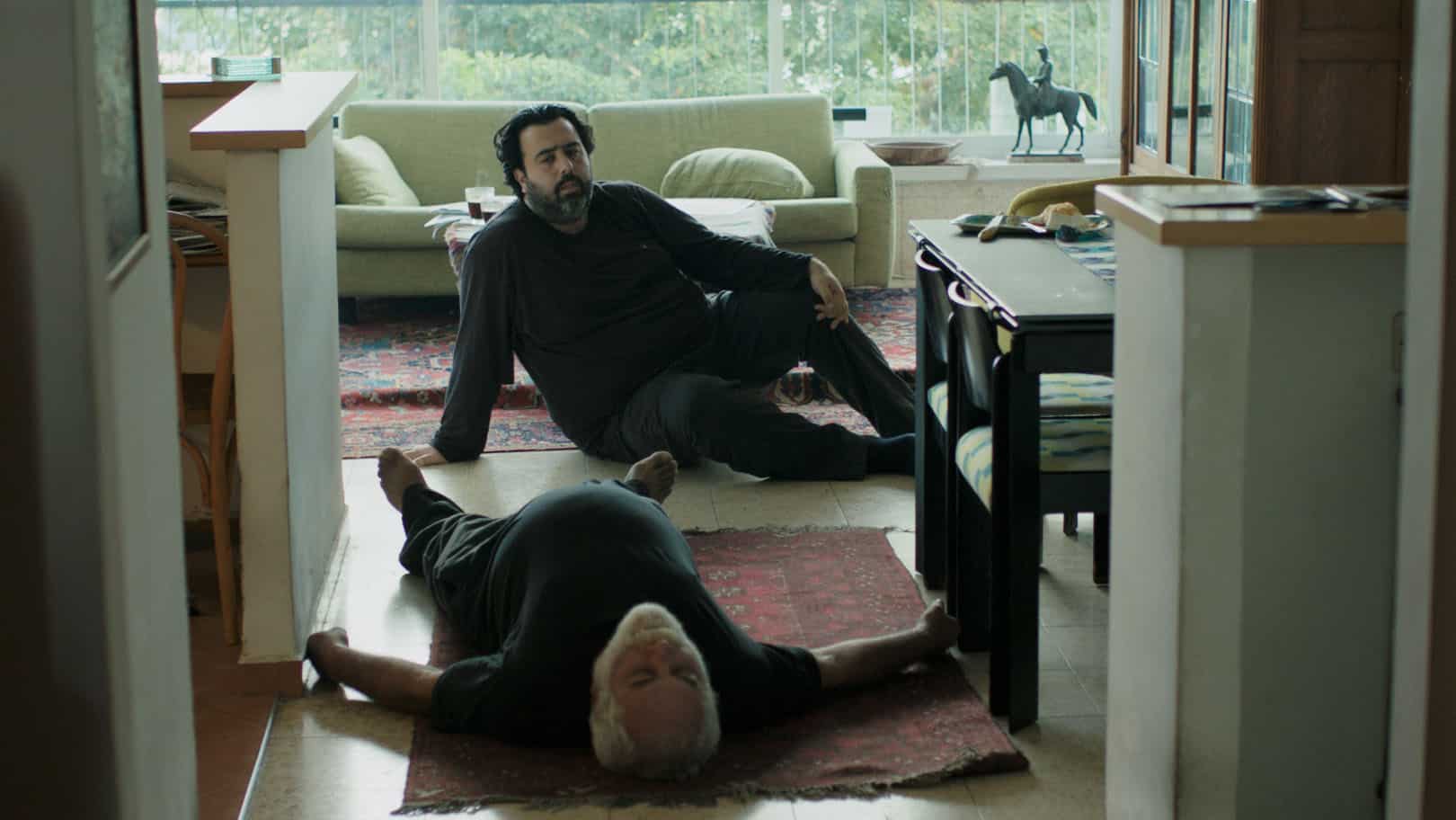It's not the first time that internationally acclaimed maestro Hirokazu Koreeda put his effort on a serial drama. In 2019 he directed the first episode and coordinated the collective show “A Day-Off of Kasumi Arimura” and before that, in 2012, he directed the lovely (a personal favourite) “Going My Home”, starring Hiroshi Abe as a clumsy father struggling with his roles as son and as father too (does it sound familiar? “After The Storm”, anybody?). However, his recent “The Makanai: Cooking for the Maiko House” has been propelled to global audience by the intervention of giant platform Netflix. The show is co-written, co-produced and co-directed by Koreeda, alongside a handful of Japanese filmmakers and is based on a famous manga of the same title that has sold more than 1.8 million copies in Japan.
Click the image below to follow our Tribute to Netflix

After seeing maiko (apprentice geishas) walking the street of Kyoto on a school trip, 16-year-old inseparable best friends Kiyo (Nana Mori) and Sumire (Natsuki Deguchi) decide to leave their home city of Aomori and embark in a life-changing experience, leaving the school and join an okiya (geisha house) in the Gion district of Kyoto to train to be among their ranks. Quite soon it becomes apparent that – while graceful Sumire is a natural – clumsy Kiyo is not really cut for the art of dancing and playing instruments, and won't be able to continue the training with the other girls. However, the dramatic realisation that she hasn't got a future as a geiko is turned into a new start by Kiyo's ability in the kitchen and her spontaneous gift for feeding and nurturing people. She is therefore allowed to stay in the maiko house as a makanai—a cook responsible for preparing meals for the maiko – preventing the painful separation from her beloved friend Sumire.
The okiya is run like a business by two veteran former geiko, Azusa (Takako Tokiwa), the house's “mother” and Chiyo (Keiko Matsuzaka), the elder “governor” of the house, who is referred to as “master” by the maiko. They encourage the girls to live like sisters in a real family, although the only blood-related one is Ryoko (Aju Makita), Azusa's moody teenager daughter, who struggles to blend in with the apprentices and with the joyous atmosphere of the house and longs for an absent father figure. In addition to them, an array of intriguing idiosyncratic characters populate the series. Momoko (Ai Hashimoto), the maiko house's champion geiko; she is beautiful and graceful, torn between career or romance (geiko are forbidden to marry), and has a passion for … horror movies. She will put together a hilarious and sweet show where the maiko play zombies. Yoshino (Mayu Matsuoka) is a loud and outspoken geiko who returns after leaving her husband, and provides an element of fun and transgression. Mr. Rem, the bartender of the little cosy cocktail bar annex to the geiko house, (played by Lily Franky) is a man with a mysterious past who mixes delicious, tailor-made cocktails named after films. Mother Chiyo, despite her efforts to maintain an elegant appearance in front of the geiko and maiko, is worryingly forgetful, but always perks up for a bit of cake and has a teenager-y crush on Korean star Hyun Bin (popular star of the K-drama “Crash Landing on You”) whose poster she hides in a tokonoma (an alcove, used for the display of art).
In the years that followed his debut, some specific themes have become synonymous with Koreeda's filmmaking style. “The Makanai” makes no exception, in fact, it includes many of the director trademark themes; here are some. Fist of all, family and parenthood. He delves into the emotional intricacies of family relationships, including the bonds between parents and children, siblings, and extended family members. In particular, films like “Like Father, Like Son” and “Shoplifters” have explored the idea of what defines a family beyond the blood line. Here, the geiko house is a surrogate family for the girls and the nurturing nest they choose to enter. Moreover, within his recurrent family analysis, a more focused sub-theme is Koreeda's representations of absent or difficult paternal figures. Here we have Azusa's daughter Ryoko, troubled by a missing paternal role-model and the struggle to accept her mother's delicate romance with another man. On the other hand, Sumire has a father who struggles to accept his daughter's life choice and Kiyo has no other family than her grandmother. Men in general are relegated into minor roles in “The Makanai”, a bartender, a postman, a photographer, the house attendants and suppliers.
Childhood is another dear theme to Koreeda; a pivotal and challenging phase of life, when the innocence and vulnerability of children is tested, and their future is shaped. “The Makanai” poignantly captures the resilience and dreams of the young protagonists facing their challenges alone; a hard training for Sumire, and the ability to turn a failure into a new dream for Kiyo.
One more component of Koreeda's films is everyday realism. He portrays the everyday ordinary moments that construct our lives through minimalistic visuals and character-driven narratives. The result is a deep connection with audiences on an emotional level. The series rarely leaves the domestic walls of the geiko house, focusing on the special bond between Sumire and Kiyo, their personal journeys and the search for identity, and food plays a special role in this contest. Despite being sometimes pigeonholed as a cooking show, don't expect fancy food or exotic recipes in “The Makanai”. Food and its role in the maiko's daily life are highlighted in the opening credits, with beautifully shot preparations of a different dish for each episode, but the personal narratives are the real substance of the series, elevating it beyond a mere cooking show. Everyday meals, simple ingredients and very common home-fare are often a means to an end here. A special aubergine is a way to reconnect a father with his own feelings, the humble ingredients of Tonjiru (a savoury pork and vegetable miso soup that everybody easily makes at home) become metaphors of each geiko's character traits, and a lifelong friendship is sealed over a snack of fried bread crusts.
Oddly, “The Makanai” shares some brownie points with another popular Japanese Netflix series that appeared on the channel at the same time, the sumo academy based “Sanctuary”. The two dramas cannot be more different in subject and setting – graceful geiko performers vs intimidating sumo wrestlers – however, they both play the charm-card of smuggling the audience into a closed community, rarely explored on screen, the training ground of these two niche – yet so traditional – specialties. Like a fly on the wall, we can experience the daily life of figures that are usually seen as almost mythical; and it's rather satisfying and engaging watching a fully made-up geisha relaxing and gossiping in tracksuit top and slippers, or two sumo wrestlers in underwear, flicking through photos on their smartphones. Another point in common is the introduction of a character who doesn't fit into the group but turns her/his failure into a rather important supporting role in the team; Kiyo, as we know, who becomes the makanai, and Shimizu who recycles himself as a yobidashi (usher) in “Sanctuary”.
Finally, tech credits are – as expected – top notch. The engaging acting, Kiyo's character's irresistible passion and energy, the score by anime composer Yoko Kanno, the beautiful shots by Kondo Ryuto (the cinematographer of Koreeda's 2018 film “Shoplifters”), all contribute to making “The Makanai: Cooking for the Maiko House” a visually stunning and culturally immersive TV series (look out for the memorable Momoko's performance on the lake under the summer moon). With its truckload of charm, “The Makanai: Cooking for the Maiko House” is hard to dislike, and it's bound to appeal to both Koreeda's fans and novices.


